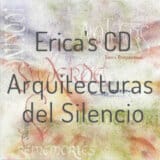voor sopraan & ensemble (sopr hp acc perc 2vn vc db)
duration 15 minutes
premiere 20th March 2010 by Marie Grove Jørgensen and musicians from the Royal Danish Academy of Music, gedirigeerd door Christoffer Nobin in de Studio Hall, Royal Danish Academy of Music, Copenhagen
score available from Donemus
This micro-opera, featuring some of Lady Macbeth’s passages from Shakespeare’s Macbeth, sets off with a jolt. A blazing rush in the ensemble steers the scene as Lady Macbeth sings of the coming of the king, Duncan. Invoking spirits to restrain her conscience, she is calling upon the courage to perform an act most sinister: the assassination of the king to ensure her husband’s ascension to the throne.
The second, calmer passage, moves to Lady Macbeth’s belittling of her husband’s courage as she begins to persuade him to go through with her plot. The strings take on an archaic character as an emotionally colder music converses back-and-forth with the voice, here accompanied by harp. Throughout, a low drone grounds the music, which eventually evolves into broader strokes before roles are swapped and the drone itself floats upwards, coming to rest above the music below.
A flood of runs in the ensemble surrounds Lady Macbeth in the next scene. Macbeth’s manhood and loyalty are bombarded as Lady Macbeth uses every persuasive tactic in her arsenal to bring her throne- ascending desires to fruition. Before long, a meditatively seductive character takes over as Lady Macbeth outlines the details of her plan. Here, the music’s ethereal nature, almost devoid of pulse, belies the words sung and the fury of their purpose.
Then, a shock! We are thrust forward to a sleep-walking Lady Macbeth overcome with guilt, attempting in vain to wash her hands of the blood that has been spilt. Every sentence in this scene is set to wildly different music, portraying her mental collapse before finally shifting into a quiet lament for her passing by “self and violent hands.”
Throughout the opera the ensemble serves as a gateway into Lady Macbeth’s inner self. It plays a pivotal role in helping to portray such a complex character, at once a loving wife wanting the best for her husband and a power-lusting regicidal maniac. It is in her guilt that her deepest nature reveals itself, making more poignant the lament of her passing as the futility of her ambition is brought to bare.
(bron: Benjamin de Murashkin http://www.demurashkin.com/)





